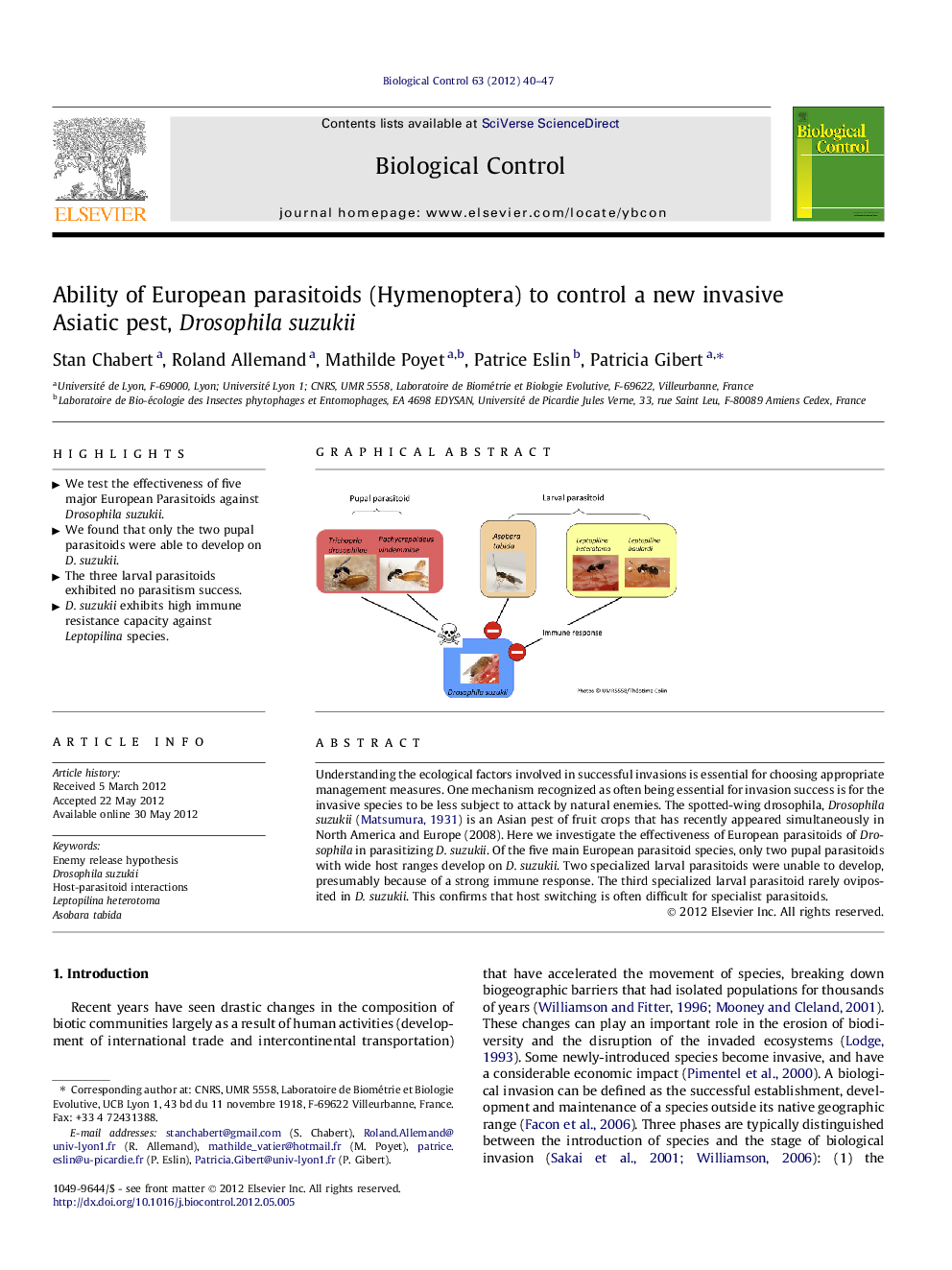| Article ID | Journal | Published Year | Pages | File Type |
|---|---|---|---|---|
| 4504129 | Biological Control | 2012 | 8 Pages |
Understanding the ecological factors involved in successful invasions is essential for choosing appropriate management measures. One mechanism recognized as often being essential for invasion success is for the invasive species to be less subject to attack by natural enemies. The spotted-wing drosophila, Drosophila suzukii ( Matsumura, 1931) is an Asian pest of fruit crops that has recently appeared simultaneously in North America and Europe (2008). Here we investigate the effectiveness of European parasitoids of Drosophila in parasitizing D. suzukii. Of the five main European parasitoid species, only two pupal parasitoids with wide host ranges develop on D. suzukii. Two specialized larval parasitoids were unable to develop, presumably because of a strong immune response. The third specialized larval parasitoid rarely oviposited in D. suzukii. This confirms that host switching is often difficult for specialist parasitoids.
Graphical abstract.Figure optionsDownload full-size imageDownload as PowerPoint slideHighlights► We test the effectiveness of five major European Parasitoids against Drosophila suzukii. ► We found that only the two pupal parasitoids were able to develop on D. suzukii. ► The three larval parasitoids exhibited no parasitism success. ► D. suzukii exhibits high immune resistance capacity against Leptopilina species.
